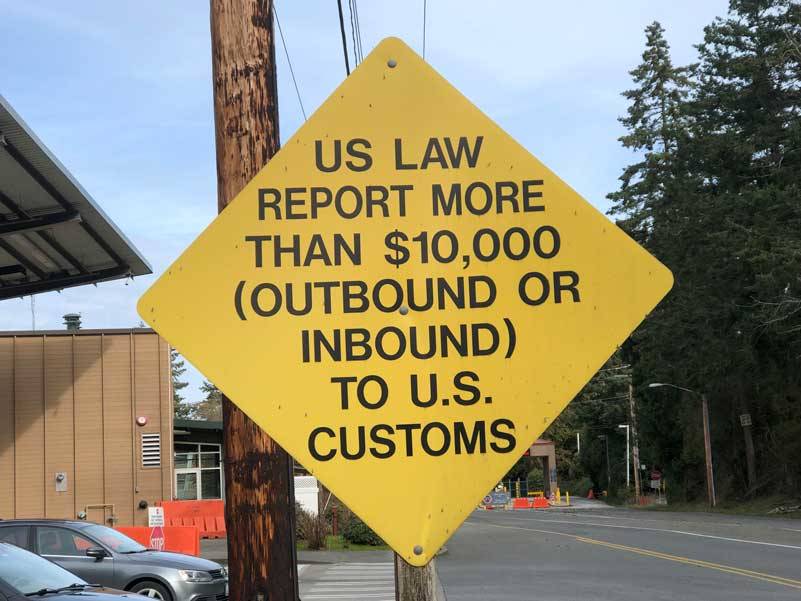By Morf Morford
Tacoma Daily Index
When the median price of a home in Tacoma hits half a million dollars, you know that the financial scale we are operating on has shifted dramatically.
Factor in other assets from pension plans to investments, and, on paper at least, just about every homeowner in Tacoma is worth somewhere near a million dollars.
This financial momentum is even more extreme in the higher asset categories.
The 35th annual Forbes list (https://www.forbes.com/billionaires/) of the world’s billionaires in 2021, included 2,755 billionaires with a total net wealth of $13.1 trillion, up 660 members from 2020. 86% of these billionaires had more wealth than the previous year. If you follow the trends of wealth, you know several names at the top of the list.
And, just so you know, kings, tyrants and dictators are not counted on this list. If you want to know more about that category of wealth, see this 2006 article: https://www.forbes.com/2006/05/04/rich-kings-dictators_cz_lk_0504royals.html?
Not just a billionaire
As you might guess, as of 2018, Microsoft founder Bill Gates had topped the list 18 of the previous 24 years, while Amazon founder Jeff Bezos was ranked at the top for the first time and he became the first centibillionaire (that’s 100 billion).
As one might also conclude, money on that scale (or any scale really) is not simple to measure. Stock prices go up or down. Some assets, like art or real estate fluctuate – sometimes dramatically.
The dot-com bubble created the most paper wealth for some high tech billionaires. When the dot-com bubble popped, the new rich saw their fortunes evaporate.
Mostly thanks to the housing bubble and banking crisis, 2009 was the first time in five years that the world had a net loss in the number of billionaires.
But for those who made it through those years, times were good. Most of the richest people in the world saw their fortunes soar in the early 2010s.
Billionaires since 2000
If you want to see how the list of the top ten billionaires has changed since 2000, take a look here – https://en.wikipedia.org/wiki/The_World%27s_Billionaires.
If you look over these lists, you’ll see that Bill Gates and Warren Buffett dominated the top two spots for most of those years.
Mark Zuckerberg (Facebook) and Jeff Bezos (Amazon) weren’t even on the list until 2016. Zuckerberg became the youngest top 10 billionaire that year at the age of 31.
In 2017, there was a record of 2,043 people on the list, which is the first time over 2,000 people were listed. This included 195 newcomers: 76 from China and 25 from the U.S. With a clear technology bias, there were 56 people under 40 and a record of 227 women.
The number of billionaires increased 13% from 1,810 to 2,043 in 2016; the biggest annual change in over 30 years of tracking billionaires globally.
In 2017 the U.S. had the most billionaires in the world, with a record of 565. China had 319 (not including Hong Kong, Taiwan or Macau). Germany had 114, and India had the fourth most with 101, passing 100 billionaires for its first time.
In 2020, with the global economy in a slump and record unemployment, the number of billionaires grew by 30%.
Also in 2020, China peaked at 819 – the most billionaires in the world. The USA held 585.
India, in 2020, holds third place with 131 billionaires. And if you think we have income/wealth inequality, in India 1% of the population holds 73% of the nation’s wealth.
China has more billionaires than any other country in the world, but when it comes to cities, it is actually New York City, United States, that has the most billionaires. New York is followed by Hong Kong, San Francisco, and Moscow.
How much is a billion anyway?
Like most people, my brain goes numb when I hear or see these big numbers.
I can visualize a hundred or even a thousand or two dollars. But a million or billion?
Here’s a little overview:
If you could save $100 per day, it would take over 27,000 years to save one billion.
To be more precise, if you, and one descendent per generation, saved $100 every day, and each of you lived for 90 years, it would take you and 304 generations to save one billion dollars.
(1,000,000,000 divided by 100 (dollars saved per day) = 10,000,000 days – 10,000,000 days divided by 365 (days per year) = 27,397.26 years to reach $1 billion.)
For a little perspective, a million is one thousand thousands. Picture a pile of ten hundred dollar bills – that’s one thousand. Now visualize a thousand of those piles – that’s a million.
In terms of time, a million seconds is about 11 and a half days. A billion is a thousand times those numbers.
A billion is NOT the next number-step after a million – that would be ten or even a hundred million – a billion is a thousand times multiplier of a million.
One billion seconds is about 32 years.
One trillion is a thousand billions, or a million millions. One trillion seconds is 32,000 years. (32 times 1,000).
In other words, whether it’s dollars or minutes, a billion, even a million, is a huge number.
Millions
I once knew a guy who worked for a major corporation.
One time he had to travel internationally with a million dollars in cash – that’s ten thousand hundred dollar bills.
That weighs a touch over 22 pounds.
A million dollars (in hundred dollar bills) fits into a standard briefcase or small-sized backpack.
A billion dollars would be a thousand of those briefcases or backpacks.





